11 Autoimmune Diseases You Can Get After COVID Infection, New Study Reveals
11 more reasons to guard against COVID reinfection.

Researchers have known since early in the pandemic that COVID-19 seems to be a vascular disease (meaning it affects the blood vessels), can cause bodywide inflammation, and have lingering effects on the immune system. The coronavirus has also been connected to autoimmune diseases, in which the body attacks its own healthy tissue, causing some or all of those effects. A group of researchers recently analyzed three major studies to determine if COVID infection increases the likelihood of developing known autoimmune disorders. (Vaccination was not considered.) They found COVID increases your risk of these diseases.
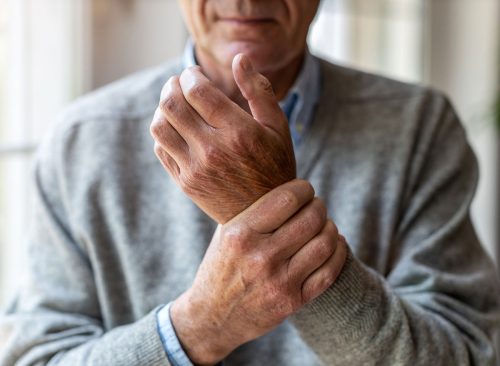
Rheumatoid arthritis happens when the body attacks joints and organs. It can cause painful swelling of joint tissue and, eventually, bone erosion and the deformation of joints. The researchers found that people who contracted COVID-19 had a 45% greater risk of developing RA than those who hadn't.
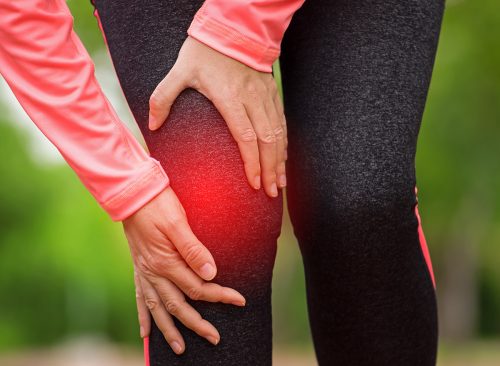
According to the National Institutes of Health, ankylosing spondylitis is a type of arthritis that causes inflammation in the joints and ligaments of the spine. It may also affect the knees, ankles, and hips. The scientists found that COVID infection increased the risk of developing this autoimmune disorder by 21%.
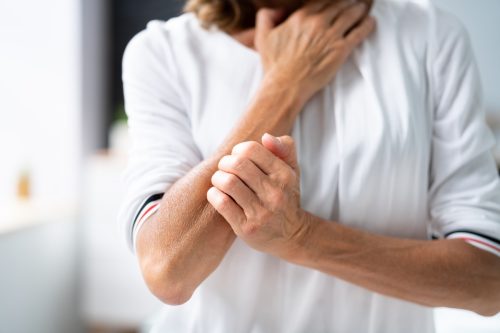
The CDC says SLE is the most common type of lupus, an autoimmune disease in which the body attacks its own tissues. This causes inflammation and tissue damage in organs that are affected, potentially affecting the joints, skin, brain, lungs, kidneys, and blood vessels. The research found that SLE is 30% more likely in people who've had COVID than those who haven't.

"Dermatomyositis is a disease that involves muscle inflammation and a skin rash," explains Penn Medicine. "Polymyositis is a similar inflammatory condition that also involves muscle weakness, swelling, tenderness, and tissue damage but no skin rash." COVID infection seems to increase the likelihood of developing the condition by 20%, the researchers found.

Also known as scleroderma, this autoimmune condition causes hardening and tightening of the skin and connective tissues. It can affect the esophagus, lower gastrointestinal tract, lungs, heart, and kidneys. The scientists found COVID infection increases your risk by 20%.

In this autoimmune disorder, the immune system attacks the glands that create moisture in the eyes, mouth, and other parts of the body. It's 26% more likely after COVID.
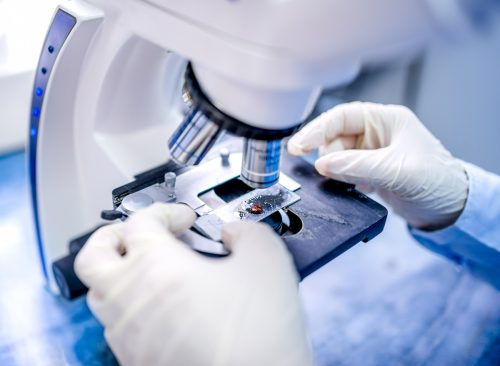
This autoimmune disease occurs when two or more connective tissue diseases overlap, such as systemic lupus erythematosus, systemic sclerosis, polymyositis, dermatomyositis, and rheumatoid arthritis. People who've had COVID are 20% more likely to develop the condition than people who haven't, the research stated.
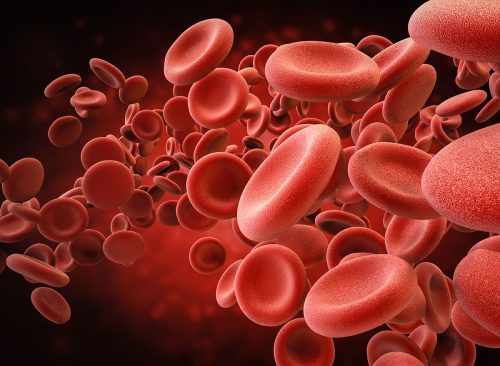
This autoimmune disorder causes chronic swelling of the blood vessels, raising the risk of blindness and stroke. Those with COVID were found to be 19% more likely to develop it than others.

Polymyalgia rheumatica causes muscle pain and stiffness in the shoulders, upper arms, hip area, and neck, the NIH says. Incidents of this disorder were observed 22% more often in people who had COVID than those who didn't.

Vasculitis involves inflammation of the blood vessels, which can restrict blood flow, causing organ and tissue damage. One or many organs can be affected. COVID infection increased the risk of developing vasculitis by 26%, according to the research.
RELATED: Surprising Signs You've Already Had COVID

In this autoimmune condition, skin cells build up and cause inflamed, scaly patches that can itch. Most often, they're found on the scalp, elbows, and knees. The researchers found COVID infection increased the risk of developing psoriasis by 38%.














